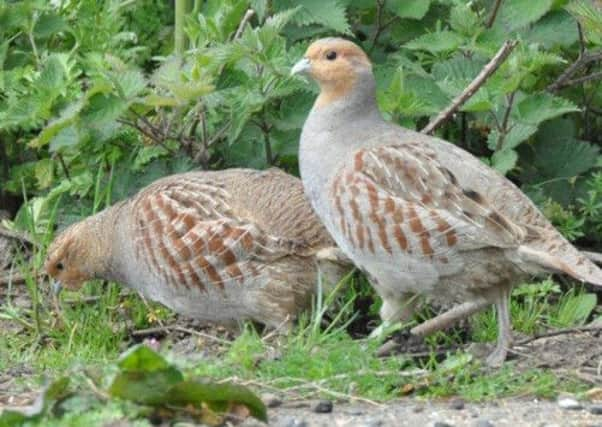Lifeline for threatened partridges


A dire 86 per cent drop in the population of wild grey partridges has been recorded in the last 40 years and is a sad sign for the health of the countryside, warns the Game and Wildlife Conservation Trust (GWCT).
Grey partridges are often considered to be a barometer of the general health of the countryside, said Henrietta Appleton, a GWCT advisor.
Advertisement
Hide AdAdvertisement
Hide Ad“In Edwardian times we estimate that there would have been more than a million pairs of grey partridges breeding in Britain,” she said.
Numbers began declining dramatically in the 1950s after herbicides were introduced to cereal growing systems and this was exacerbated by losses of hedgerows and mixed farming.
She said: “The introduction of herbicides and insecticides did not directly kill the partridges but broke the food chain for young chicks. Young chicks, when they first hatch, need at least 2,000 insects per day to thrive and survive.
“Unfortunately insect numbers are much reduced in cereal crops because the chemicals applied to crops break the natural food chain. However, the GWCT has developed techniques that can help to put the insects back into cereal crops and increase chick survival, by providing good areas of nesting habitat and brood rearing habitat close to each other.”
Advertisement
Hide AdAdvertisement
Hide AdThe GWCT estimates that the Yorkshire Wolds, including Holderness and the Humberhead Levels around Goole, could hold at least 8,500 wild grey partridges. Twenty-eight sites across the Wolds are monitored but just 203 pairs of the bird have been recorded.
Mrs Appleton said: “We could see a lot more partridges in the area, but we need more people to carry out conservation work to help the species and importantly, we need more farmers and landowners involved in our count scheme, so that we can more accurately measure the existing population.”
GWCT and RSPB experts will be at Greenlands Farm, Bridlington, on Thursday, June 20 at 4pm, to offer farmers advice on how to boost partridge numbers.
To book a free place, call the GWCT on 01425 651013, email [email protected] or book online at www.gwct.org.uk/courses